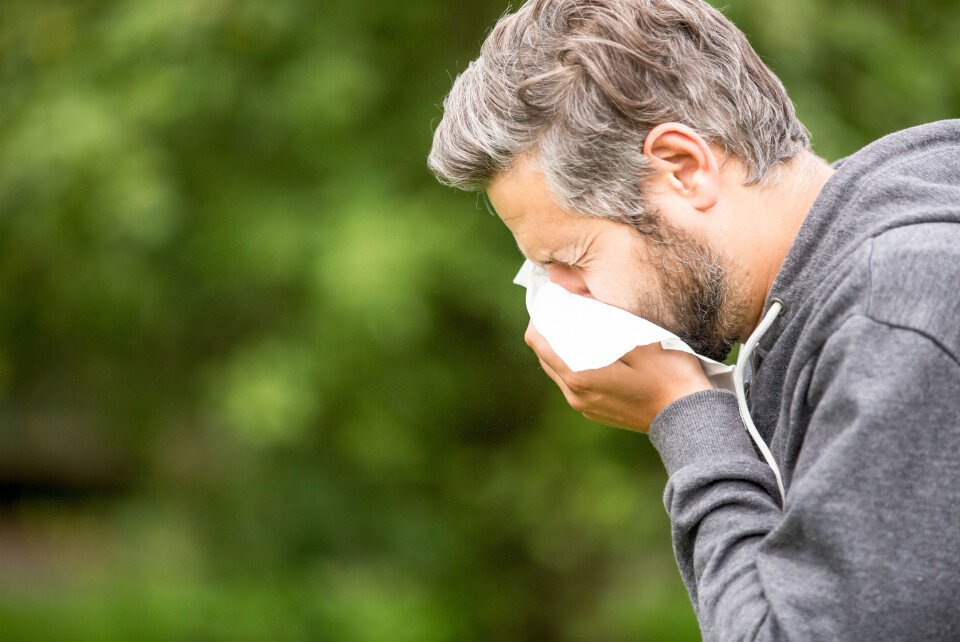-
Why 10 million tiger mosquitoes are being deliberately released in Nouvelle-Aquitaine
The potentially dangerous insects are now in every region of the country
-
What is an eSIM and is it useful for people travelling to France?
An eSIM can be linked to a mobile phone contract to provide access to overseas networks
-
Paris announces date for river Seine to open for swimmers
Three natural swimming pools will open this summer along the river
Pollen allergies in France worse this year and set to intensify
Air and pollution experts have warned that global warming and the spread of invasive plants are expected to cause more severe symptoms in future years

Pollen allergies have been worse in France so far this year, experts have said, and they are set to intensify in future years as ragweed spreads and temperatures rise due to global warming.
Allergy specialists have noted that their patients have suffered more this year due to weather conditions favouring high concentration and spread of pollen.
The French air monitoring network le Réseau national de surveillance aérobiologique (RNSA) has warned that the whole of France is still on red alert for allergies due to the pollen and pollution levels in the air.
Allergy associations have reported a greater number of calls from patients this year.
However, Pascale Couratier, director general of l'association française pour la prévention des allergies, said that it was difficult to draw direct comparisons this year compared to the past two.
She said: “In 2020, we had lockdowns, so people went out less. And last year, wearing a mask protected people against allergies.”
Read more: Allergies in France: Do anti-Covid masks protect against pollen?
Ms Couratier did confirm that “[this year], symptoms have been felt by many and in a very violent way”.
One sufferer, Elodie Germain, aged 43, said that her allergies have been noticeably worse this year. She normally lives in Paris, but upon visiting her new holiday home in Normandy, she has reported intense symptoms.
She told La Dépêche: “Over the past few weeks, I have suffered much worse attacks than I have in previous years at the same time of year. As soon as I go to the countryside, it’s as if a wave of pollen unfolds over me.
“I have a permanently runny nose, rashes all over my face, neck and mouth, and night-time asthma that stops me from sleeping.”
Allergy doctors may prescribe antihistamines, drops or corticosteroids, and possibly long-term ‘desensitisation’ treatment.
Pollen periods
There are three main pollen periods in France over the course of a year.
-
First, there is the period of tree pollen (olive tree, plane tree, birch, oak, etc.).
-
Then comes the grass pollen season.
-
The season ends with herb and ragweed pollen.
Warm weather makes it easier for pollen to spread in the air. This year, early heat has contributed even more than usual to the spread of many types of pollen.
Summer seasons
The height of the season is set to come to an end before July.
However, experts predict that the phenomenon is set to worsen in future years due to global warming, with longer allergy periods and more intense symptoms.
Samuel Monnier, spokesperson for the RNSA, said: “In 30 years, we have already seen that birch tree pollen has risen by more than 20%. There is also more and more ragweed, which are very irritating plants, which are moving towards the north, and to higher altitudes.”
Read more: Plan against allergenic ragweed launched in south of France
Isabelle Bossé, president of allergy experts’ union le Syndicat des Allergologues, said: “Global warming will lead to longer pollen seasons, while pollution will make pollen more aggressive. This is a real public health issue.
“When you don't experience a severe allergy, you can't understand what it's like. It has a huge impact on quality of life.”
In France, figures from the health ministry suggest that around 20% of children over the age of nine and 30% of adults suffer from pollen allergies.
Related articles
Hay fever hot spots around France as invasive ragweed comes into bloom
Pull up this plant linked to severe pollen allergies
Ragweed: the pollinating plant costing France millions
Allergy alert: Birch pollen to arrive in northern France this week
























